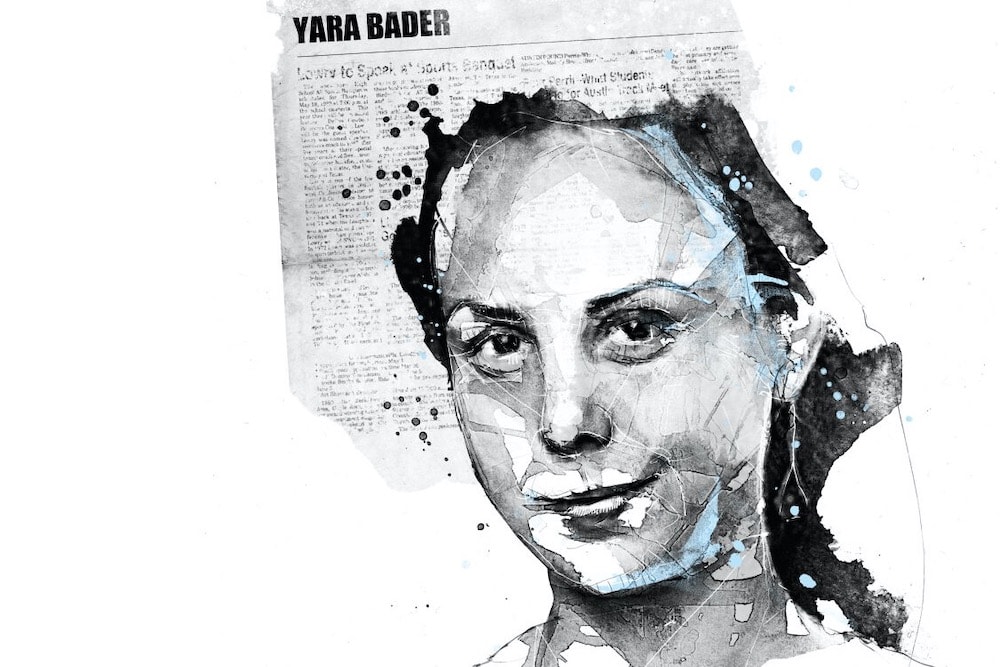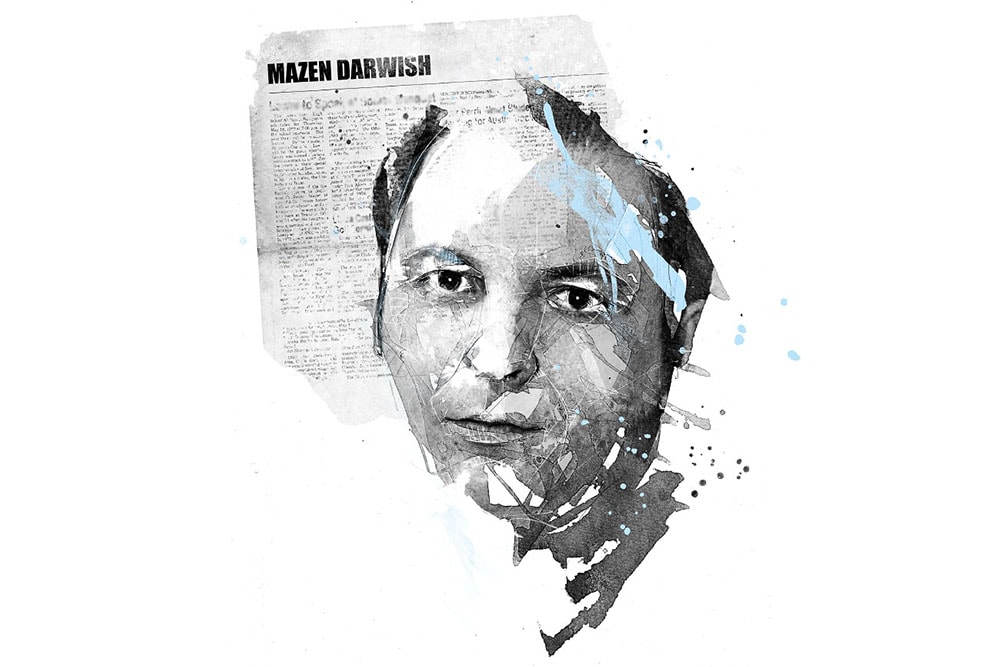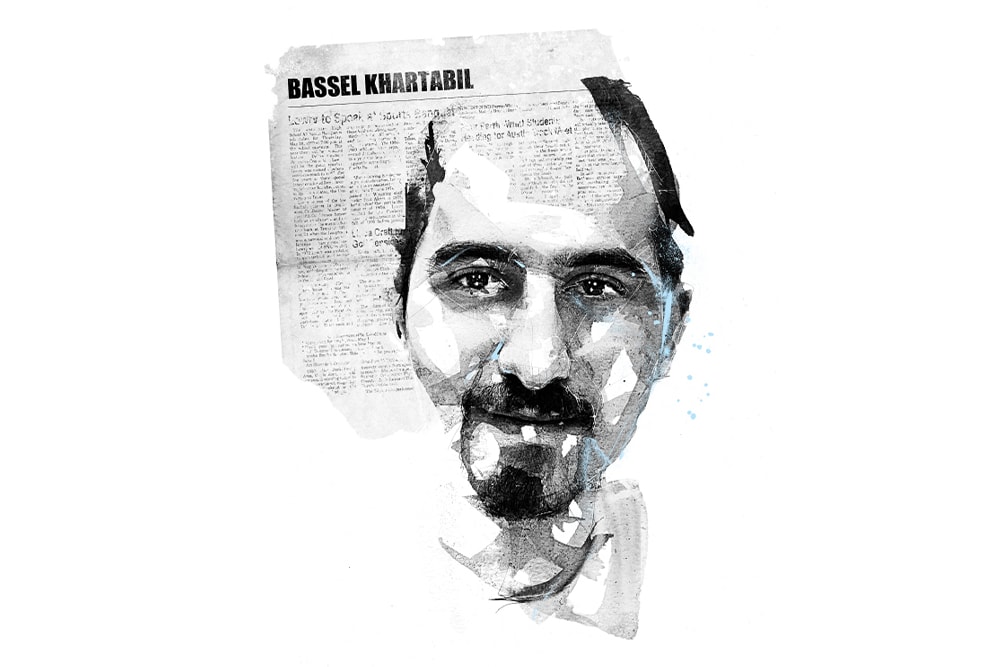Journalist and activist Yara Bader tirelessly campaigns for free speech in her country where foreign journalists and observers have little access, and independent voices are imprisoned, disappeared and murdered.
In an article she wrote in Arabic for Global Voices on 15 March 2015, Yara Bader said: Three years ago, in Damascus, we were surrounded by those whom we knew and loved. Today, so many of them are detained, lost, kidnapped, or fighting for their lives and for the chance to remain on faraway beaches around the world. Alone, all of us, with tired souls but with white hearts.
Yara Bader is head of the Media and Freedoms Unit at the Syrian Centre for Media and Freedom of Expression (SCM), and her husband, Mazen Darwish, is the organisation’s Director. In February 2012, they were among 14 SCM staff members who were arrested during a raid on their offices by the Syrian Air Force Intelligence services. Some were freed a few days later, and, in May 2012, eight more were released, among them Bader, to face trial for ‘possession of banned publications’. Darwish and three others remained in jail, held on accusation of ‘publicising terrorist attacks’. Nothing was known of Darwish’s whereabouts for nine months before he was transferred to a prison in Damascus amidst reports that he had suffered torture. He was eventually freed in August 2015, but the trial against him continues.
The SCM was set up in 2004, becoming a target of government suppression from the start. Its website was banned in 2006 and its offices were twice closed by the authorities: in 2004 and 2007. In February 2008, Bader, Darwish and four others, were arrested and held for ten days for their reporting on riots in Damascus. Today, as Amnesty International reports, thousands of people are in prison or have been disappeared by the Syrian authorities, or have been abducted by non-state armed groups. Among them writers, artists, journalists, civil and human rights defenders. Independent reporting has become almost impossible, particularly since the outbreak of the Syrian War in 2011.
In this hostile environment, the SCM has become a key source of information for foreign journalists and observers, bringing it to the attention of the state and non-state actors. Bader told the Guardian in March 2015 that the Syrian government has accused the SCM of aiming to destabilise the country, and encouraging international organisations to condemn Syria in international forums by posting information, publishing human rights reports, and keeping records of people missing, detained and killed during the conflict. Yet the SCM continues to monitor events, and take a public stance whenever it sees abuse.
Bader’s recent work as head of the Media and Freedoms Unit has focused on providing critical support to journalists and media workers in Syria and neighbouring countries, as well as monitoring and documenting violence and hate speech in the country.
Her efforts to create an environment where media professionals can operate freely and without fear of retribution include combating impunity for crimes perpetrated against Syrian journalists. “Accountability for crimes committed against media professionals is the only way to guarantee the sovereignty of the Fourth Authority and its ability to operate freely,” said Bader in a speech during the opening of the People’s Tribunal on the Murder of Journalists in The Hague.
Bader is also an impassioned speaker at international events and in the media. In March 2015 her husband, Mazen Darwish, was granted the International Press Institute’s World Press Heroes Prize at its annual meeting held in Yangon, Burma, where Bader came to accept the award on his behalf. On 3 May 2015 World Press Freedom Day, she went to Latvia to receive his UNESCO World Press Freedom Award. The same year, Bader herself was honoured as a recipient of Human Right Watch’s 2015 Alison Des Forges Award for Extraordinary Activism. In October 2023, Bader and Darwish received the Clooney Foundation for Justice’s Albie Awards for SCM’s courageous advocacy for free speech, freedom of the press, and other human rights in Syria, despite constant threats from Bashar al-Assad’s regime.
In a video interview with the women’s rights group ‘Liberated T’ as part of their ‘I am a woman’ campaign, Bader said: “I am a woman. This is part of who I am when I dream, work, travel. I am a woman”.
With Syria’s humanitarian crisis relentlessly escalating at a scale unprecedented in recent decades, the extraordinary courage and tenacity of Yara Bader, Mazen Darwish and other human rights defenders in Syria, is as essential as it is remarkable.
Illustration by Florian Nicolle


